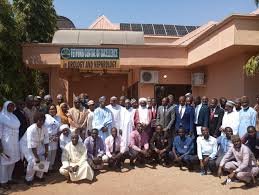Grassroots Centre for Rights and Civic Orientation has called for a comprehensive approach to combat Gender-Based Violence (GBV) during the ongoing 16 Days of Activism against gender-based violence, highlighting the critical need for community-level intervention and societal transformation.
As the world observes the annual campaign from November 25 to December 10, the organization emphasized the urgent necessity of addressing violence against women and girls, particularly in local communities across Nigeria.
In a statement issued by Armsfree Ajanaku, Executive Director of the Grassroots Centre on Tuesday, the organization condemned all forms of violence perpetrated against women and girls, emphasizing the need for a whole-of-government and whole-of-society approach to address GBV.
“We stand in solidarity with the millions of victims of GBV, whose lives have been shattered and who bear the scars of this violence,” the statement reads.
“Nearly 1 in 3 women have experienced violence in their lifetime, the crisis of GBV has reached a critical point globally, demanding immediate and decisive action,” it added.
The advocacy group underscored the significance of this year’s theme, “Towards Beijing+30: UNITE to End Violence Against Women and Girls,” which aligns with the upcoming review of the Beijing Declaration and Platform for Action (BPOA) at the Commission on the Status of Women in March 2025.
Highlighting the stark realities of gender-based violence in Nigeria, the organization pointed to pervasive challenges including physical abuse, sexual assault, and digital harassment.
The organization noted media reports and findings from groups like the International Federation of Women Lawyers (FIDA) reveal a disturbing pattern of violence against women, often compounded by a culture of silence and inadequate legal recourse.
The digital landscape has not been immune, with women facing significant online harassment and gendered disinformation that impedes their political and social participation.
Grassroots Centre called on government entities, civil society, and development partners to implement concrete actions. Their recommendations include enforcing existing legislation, promoting citizen enlightenment, creating safe spaces for survivors, and increasing resources for women’s empowerment.
“Nigerian women deserve more than sympathy,” Ajanaku emphasized. “They deserve tangible outcomes that address the fundamental drivers of gender-based violence.”
The organization stressed the importance of a “whole of government, whole of society approach” to decisively combat GBV, with particular focus on local government areas, political wards, towns, villages, and rural communities.


























